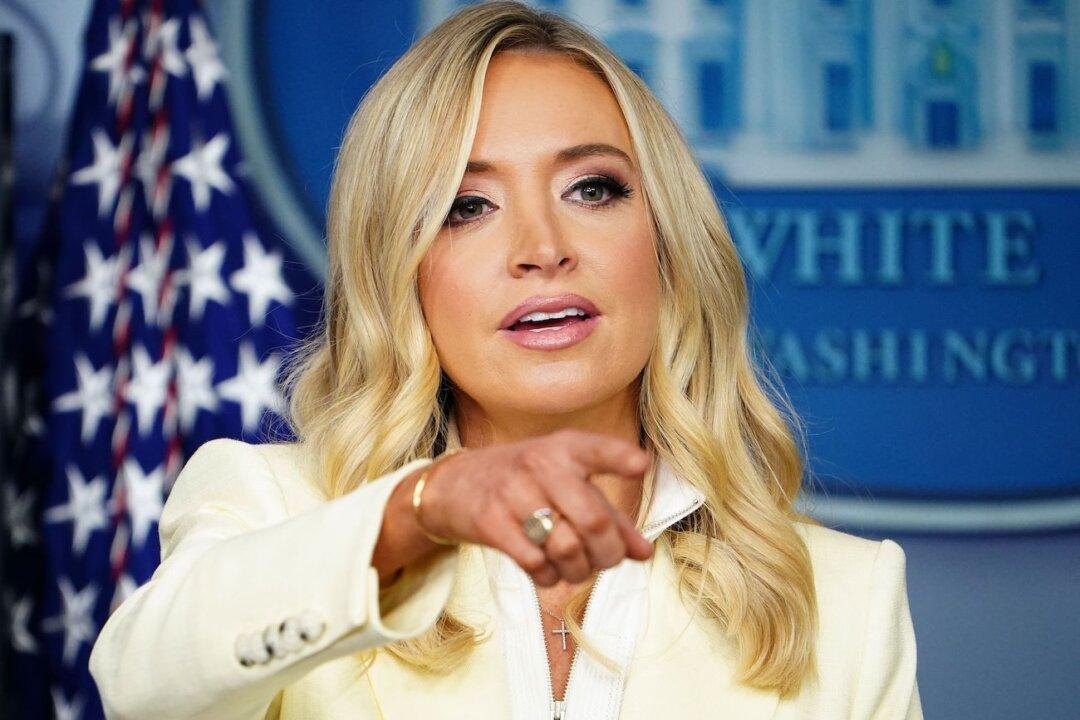White House Press Secretary Kayleigh McEnany on Friday posed a series of questions to the reporters in the room over the case of former Trump administration national security adviser Lt. Gen. Michael Flynn and the involvement of various entities under the Obama administration.
McEnany’s questions were triggered by reporter Chanel Rion from One America News (OAN), who asked whether President Donald Trump “has considered pardoning” former President Barack Obama over allegedly “illegally wiretapping on Trump Towers, illegally spying on U.S. citizens and other potential crimes out there.”




